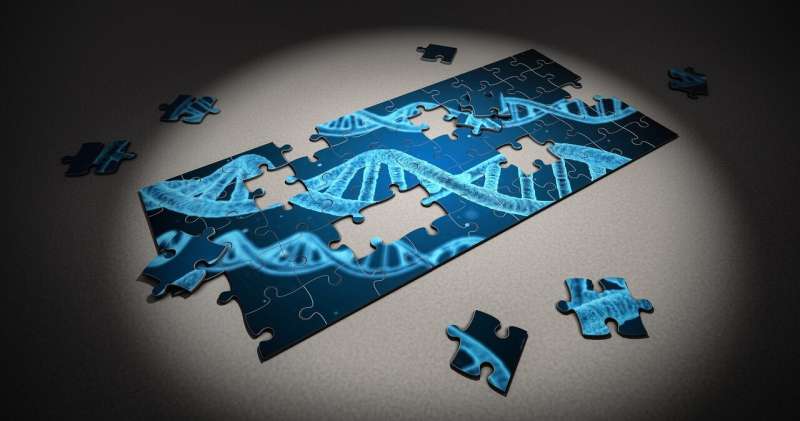Credit: CC0 Public Domain
The international COVID-19 pandemic has changed the behavior patterns of humanity. To date, more than 136 million people have suffered from the disease and more than 2.9 million of them have lost their lives. The symptoms of the infection vary widely in the population, from individuals who do not present any symptoms to those who need admission to intensive care units with emergency assisted ventilation. It is largely unknown what factors are responsible for this range of very different clinical pictures. Today, an article published in the journal EBiomedicine, The Lancet's sister journal for laboratory findings, by the group of professor Manel Esteller at the University of Barcelo and ICREA Research Professor and Dr. Aurora Pujol, also ICREA Professor and head of the Neurometabolic Diseases Group of the Bellvitge biomedical campus, shows that the epigenetic endowment of each person influences the severity of the COVID-19 disease.
In the article, Dr. Esteller writes, "Given the high number of people infected by the virus that have saturated all health systems in the world, it would be nice to have ways to predict in advance whether the virus infection in a given individual will require hospitalization or can simply be controlled on an outpatient basis. It is known that advanced age and the co-existence of other pathologies (cardiovascular, obesity, diabetes, immune defects) are associated with a greater severity of the infection, but what happens to the rest of the population? ... We decided to study more than 400 people who had tested positive for COVID-19 who did not belong to any of these risk groups and study their genetic material depending on whether they had not had symptoms, or they were very mild, or instead they had been admitted to the hospital requiring respiratory assistance.
"We found that there were epigenetic variations, the chemical switches that regulate DNA activity, in the individuals positive for the virus who developed a severe COVID-19. These modifications occurred mainly in genes associated with an excessive inflammatory response and in genes that reflect an overall worse state of health. Interestingly, 13% of the world population presents this epigenetic signature (EPICOVID); thus, this is the group at maximum risk that we must take special care of. "
More information: EBiomedicine (2021). DOI: 10.1016/j.ebiom.2021.103339
Journal information: EBioMedicine , The Lancet
Provided by University of Barcelona
























